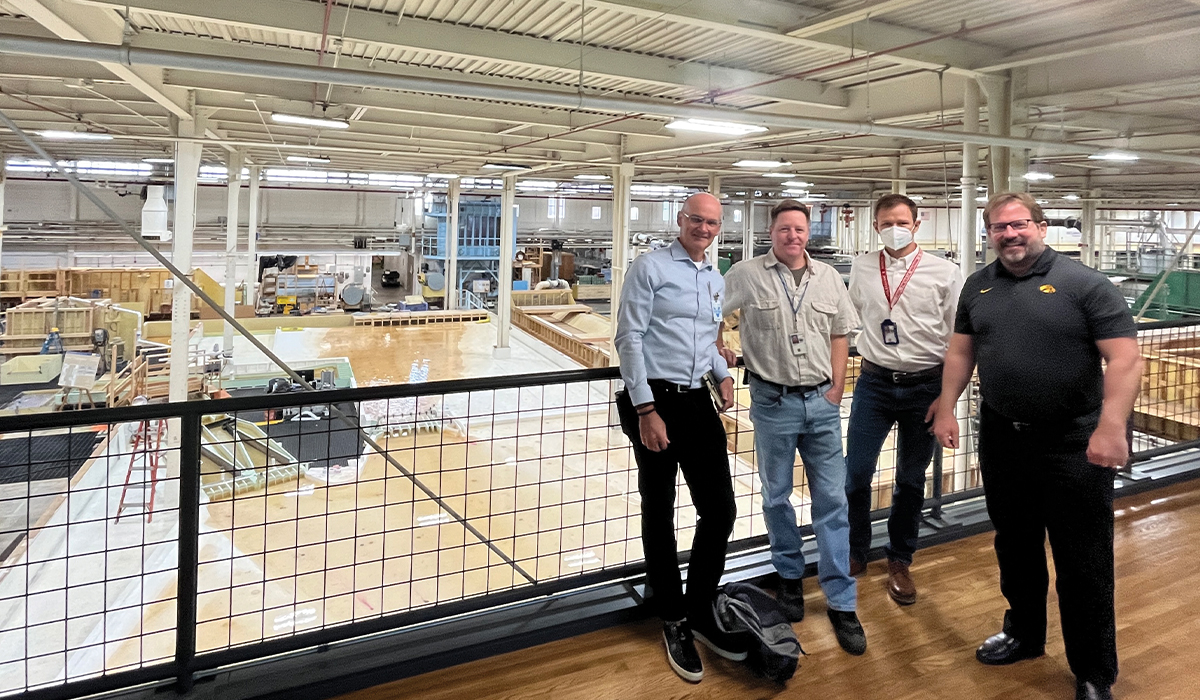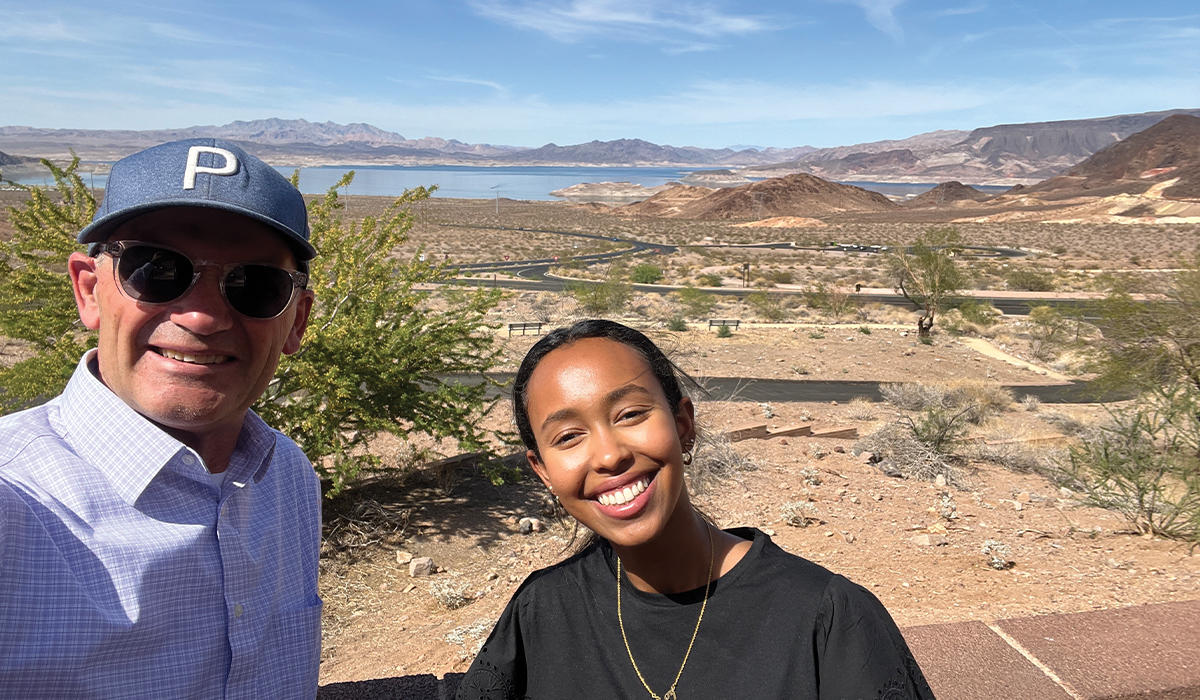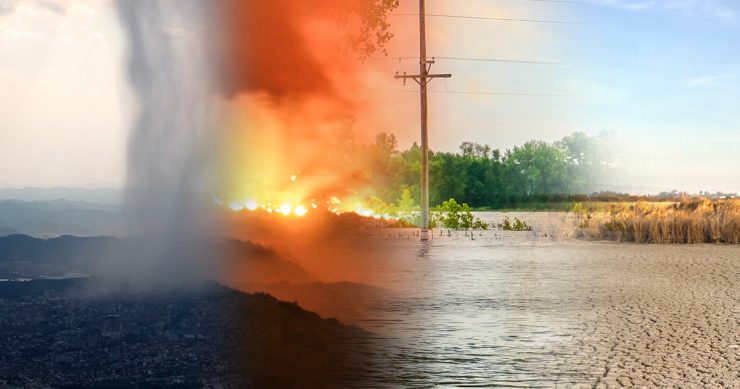For more than 25 years, hydrology and water resources expert Tom Piechota has immersed himself in the study of water systems and issues in the American Southwest. These days, his research is even more acutely focused on the existential challenges of managing water in the West.
Supported in part by a $1 million grant from the U.S. Department of Education, Piechota works with Chapman University faculty research colleagues and students across a variety of disciplines, including environmental science, remote sensing, computer science and engineering.
As he pursues answers to vital questions about the immediate and long-term impact of drought, floods, wildfires and coastal erosion, he draws on a wide range of experiences. Previously, he was co-PI on a $20 million climate change impact study funded by the National Science Foundation, which also has given him a CAREER Award. His journal articles and other research work have been cited more than 4,000 times.
Among his current projects is a collaboration with Chapman plant biologist Hagop Atamian and Earth system scientist Joshua Fisher. The professors and their students hope to quantify the agricultural water savings of growing chia instead of a thirstier forage crop like alfalfa. Preliminary data indicates a savings of up to 20%.
Read more:
Chapman Leads Conversation on California Water Supply
More broadly, Piechota is exploring new models that can help with resilience planning in the face of growing climate change impact. In one project, he and two of his students are working to develop a water budget calculator for California.
“We want to be able to answer questions like: Over the next 20 years, if urban demand increases by 1% and we no longer have access to Colorado River water, what does that mean for our state water portfolio?” he says.
A lot of his current work is about hazard mitigation, explains Piechota, who has taken on a number of leadership roles in his six years at Chapman, from vice president of research to, now, interim dean of the Fowler School of Engineering.
“Water is not just a science issue — it impacts policy, infrastructure and the economy,” he says. “These issues affect everyone, and they’ll require multidimensional solutions if we’re going to develop sustainable and resilient water systems.”

Insights Spring from Water Road Trip
To get a firsthand look at some of those systems and to prepare to teach a new course he launched last spring called “Water in the West,” Piechota embarked on an epic water road trip in summer 2022. From Hoover Dam to the U.S. Bureau of Reclamation offices, the California Delta to the headwaters of the Colorado River, the journey offered insights that now inform his teaching and research.
“Not only was it a chance to revisit places where I’ve done research over the years, but I also met with important water resource managers, including a number of my former students who are now in positions of influence,” Piechota says.
As an engineer, he was excited to see how infrastructure gets deployed in places like Flaming Gorge Dam on the Green River in Utah, where strategic water releases help balance the capacity of downstream reservoirs. In Las Vegas and at Lake Shasta, he learned how water managers were coping with severe shortages due to prolonged drought.

Interestingly, by the time Piechota started teaching his class, Californians were dealing with destructive flooding due to a rainy season full of atmospheric rivers.
Piechota calls the rapid shift between extremes “weather whiplash.”
More research is needed in California, Italy, Australia and other places with a Mediterranean climate to help determine whether further swings are on the horizon, Piechota says.
Read more:
A Matter of Degrees: Tropical Forests Are Within Critical Temperature Thresholds
He adds that he doesn’t “get too far into the science debate as to whether it’s part of natural cycles or anthropogenic effects.” Still, the research record is clearly pointing to more volatility.
“People in the water sector are trying to adjust to that,” Piechota says. “There’s a lot of uncertainty in all the models, but one thing they do show is that there will be more extremes.”




